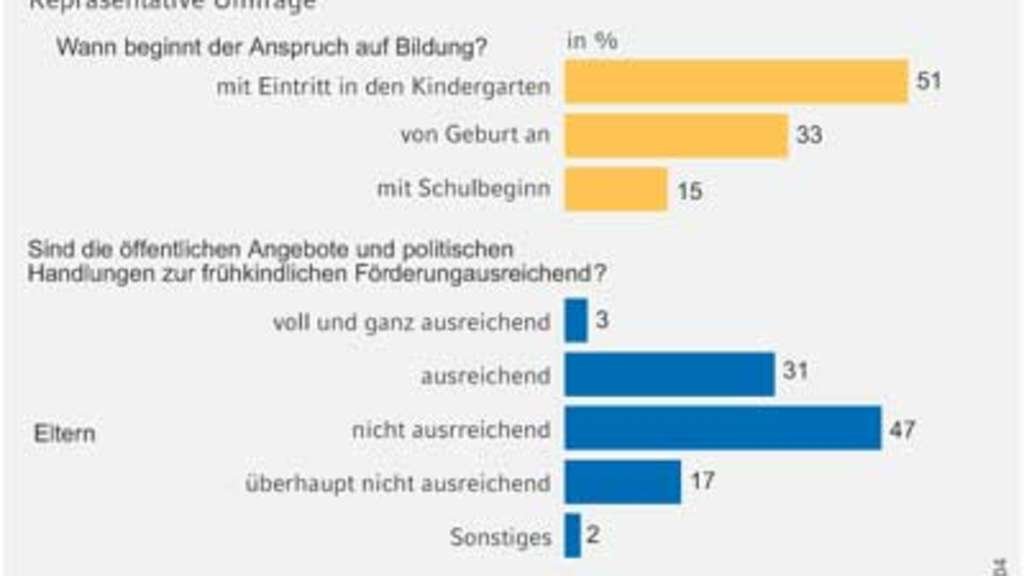Anyone who speaks different languages as a toddler will find it easier later in life. With this thesis, the EU Commission is promoting more foreign language teaching at preschool age.

Playful learning of foreign languages already works in preschool
In kindergarten "Tutti Frutti" in Brussels, eight preschoolers sit at an orange table and to sing a children’s song in English. Shortly afterwards, the colored pencils are taken out and the children paint different faces. "HAPPY" stands over the laughing faces, "SAD" about the sad one.
The educator Vera, half American, half Brazilian, explains how she can make a foreign language appealing to the only three year olds: "We have to be really creative and use a lot of visual stimuli." This method is intended to make children curious, and "happy with what they’re doing here".
EU Commission wants to raise parents’ awareness

EU Commissioner Leonard Orban provides the Piccolingo campaign in Brussels
Multilingual, satisfied children are exactly what Romanian Leonard Orban wants for the European Union of the future. In time for the European Day of Languages on September 26th, the EU Commissioner for Multilingualism launched a 400,000 euro information campaign called "Piccolingo".
The aim is to convince parents in all member states to introduce their children to foreign languages at a very early stage. The main argument, according to EU Commissioner Orban: "You will be able to have a better life, find better jobs."
Current statistics show that only a third of adults in the EU speak two or more foreign languages. After all, 60 percent of high school students learn at least two other languages. According to the EU statistical office, the leaders in language learning are the Czechs, Finns, Dutch and Luxembourgers.
No disadvantages when acquiring the mother tongue

Singing in the bilingual kindergarten
Does language learning really only have advantages in the past? Some parents are concerned about confusing their children with the language mix in preschool age. First of all, you would rather put more emphasis on the correct learning of the mother tongue.
But the language learning expert Peter Edelenbos refers to studies on this topic, the result of which is clear: "The mother tongue is absolutely not negatively influenced! But there are positive influences on the "Ability and motivation later in life also Want to learn foreign languages", so Edelenbos. Another plus point is a greater intercultural understanding – important in the EU with its 27 member states.
The demand is great

Patricia Pitisci, head of the Tutti-Frutti language school in Brussels
Patricia Pitisci, who started the language school twelve years ago "Tutti Frutti" has opened, cannot complain about a lack of demand. She has around 200 small language students in her classes. English, French, German, Italian, Dutch and Spanish are taught here.
Since the school was expanded six years ago, there are at least 70 children in the bilingual kindergarten groups. "There is an enormous demand that we cannot meet at all", says Pitisci.
Criticizing the parents is not enough, she criticizes: funds must also be provided to promote the structures, both large and small. She could already look forward to a written acknowledgment of her work by the EU Commission. However, she would find concrete financial support for her private initiative even better.
RELATED ITEMS
-

Fairy tales in books and apps – everything used to be better?
The Grimm brothers’ house fairy tales are not only found in books, audio books and films, Little Red Riding Hood and Snow White are now also available in apps…
-

German kindergartens abroad are often better than here – expat news
The children of German workers abroad are apparently better looked after in German-speaking kindergartens in other European countries than in this country….
-

Child benefit or child allowance which is better for me?
Child benefit or child allowance What is better for me and my child Child benefit or child allowance? Especially with well-earning parents…
-

Support children earlier, know
We use cookies to offer you a better user experience. By using our services, you agree to our use of cookies….
